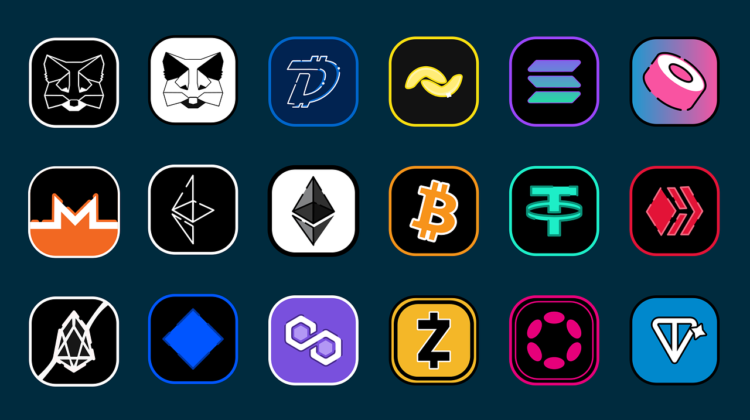
When diving into the world of cryptocurrencies, it’s almost impossible not to encounter the term “altcoins.” So, what are altcoins, you ask?
In essence, altcoins are any digital currencies that are not Bitcoin. But there’s more to this intriguing ecosystem than just alternatives to the original cryptocurrency. This blog post explores what altcoins are, their types, potential advantages, and some considerations before investing.
When diving into the world of cryptocurrencies, it’s almost impossible not to encounter the term “altcoins.” So, what are altcoins, you ask?
In essence, altcoins are any digital currencies that are not Bitcoin. But there’s more to this intriguing ecosystem than just alternatives to the original cryptocurrency. This blog post explores what altcoins are, their types, potential advantages, and some considerations before investing.
Let’s take a closer look.
What Are Altcoins: Beyond Bitcoin
To understand what altcoins are, first, we need to look at Bitcoin’s role in the crypto realm. Bitcoin was introduced in 2009 by the pseudonymous Satoshi Nakamoto as the first decentralized digital currency. Since then, its revolutionary use of blockchain technology has paved the way for thousands of other digital assets collectively known as altcoins.
Altcoins, short for “alternative coins”, encompass a vast array of cryptocurrencies with varying functionalities. While some aim to enhance Bitcoin’s design, others introduce innovative features that fulfill different needs. According to an article from Exploding Topics, there are over 13,000 altcoins currently available, each vying for a spot in the ever-evolving crypto landscape.
Types of Altcoins
Altcoins can broadly be categorized based on their purpose and technology. The main ones to know about include:
1. Stablecoins
Stablecoins address one of the most volatile aspects of cryptocurrencies – their price. By pegging their value to stable assets like fiat currencies or precious metals, stablecoins provide a safer harbor for those who wish to benefit from crypto’s technology without the unpredictable price swings.
One of the most popular examples is Tether (USDT). It’s pegged to the US Dollar, it’s widely used for trading and lending activities due to its relative stability.
2. Utility Tokens
These altcoins serve specific functions within a blockchain ecosystem. They provide access to a product or service, often representing a stake in the project itself.
Chainlink (LINK) is a typical example. It facilitates secure and scalable interactions between blockchain-based smart contracts and real-world data.
3. Meme Coins
Emerging often from internet culture and community-driven hype, meme coins generally lack an inherent utility but can gain significant attention. Most of these fail to gain much traction, but a few options like Dogecoin (DOGE) have exploded. Originating as a joke, its popularity has surged largely due to social media endorsements.
4. DeFi Tokens
Decentralized Finance (DeFi) tokens play a pivotal role in creating blockchain-based financial systems without intermediaries. Uniswap (UNI) is one of the most common examples. It facilitates trading and earning fees on automated liquidity providers.
5. Governance Tokens
These tokens provide holders with decision-making power in a blockchain network, empowering users to vote on protocol improvements and changes. Maker (MKR)https://explodingtopics.com/blog/number-of-cryptocurrencies, for example, enables governance of the MakerDAO and Maker Protocol that create DAI, a stablecoin.
Why Are Altcoins Important?
Altcoins are vital because they foster innovation and diversification in the cryptocurrency market. Here are a few reasons why altcoins are worth considering:
- Innovation: Altcoins adopt new technologies and features, pushing the boundaries of blockchain utility (e.g. smart contracts originated from altcoin projects like Ethereum, vastly extending blockchain’s capabilities).
- Diverse Applications: From decentralized finance to supply chain management, altcoins cater to a wide array of applications, appealing to specific needs within various industries.
- Investment Opportunities: The diverse nature of altcoins presents numerous investment opportunities.
It’s important to remember that while altcoins can be riskier than established coins like Bitcoin, the potential for high returns exists.
Things to Consider Before Investing in Altcoins
Altcoins can be a good way to expand your portfolio, but it’s crucial to weigh both potential benefits and risks before investing. Some key considerations include:
- Volatility: Altcoins can be subject to even greater volatility than Bitcoin.
- Security: Less established coins might lack the robust security measures found in more mature networks, presenting an added layer of risk.
- Regulation: Regulatory scrutiny is intensifying across the globe, and understanding each coin’s standing in terms of compliance is increasingly important.
- Research: In-depth research is essential before investing, looking at the coin’s use case, team, roadmap, and community can provide insights into its potential and longevity.
Navigating the Altcoin Ecosystem
You may no longer be asking “What are altcoins?”, but remember that it’s crucial for anyone interested in cryptocurrencies to fully understand any investment they’re making. As they continue to evolve, altcoins not only offer alternatives to Bitcoin but also play a pivotal role in the digital asset ecosystem’s expansion. Whether you’re driven by the allure of potential profits or fascinated by the technological innovations these coins bring to life, a methodical approach and keen awareness of the market are indispensable.
In an ever-changing financial landscape, altcoins present both challenges and opportunities. Be sure to consider all aspects, conduct thorough research, and keep an eye on evolving trends to make informed decisions. Never invest in an altcoin unless you’ve done your research and are confident with your decision.
Take a look at our guide on the top cryptocurrency exchanges in 2025 to learn more about where you can invest in altcoins.
